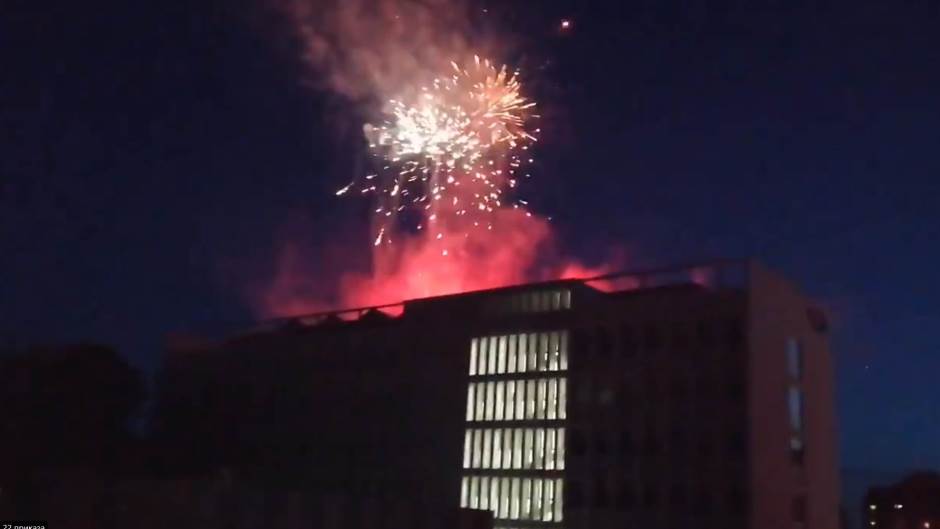

These events indicate how polarized Serbian society is today, placing it on the verge of civil conflict. The physical conflict that took place in front of the National Assembly is an indicator that the ruling party is not able to control the actions of its supporters, which adds additional danger. The responsibility for tensions in Serbian society is shared among all politicians, but the greatest responsibility belongs to those who hold the greatest power—that is, the current government and the President of Serbia, Aleksandar Vučić.
There is political responsibility on the side of opposition too, which, in the absence of a plan or strategy for a boycott, gains its visibility through right-wing leader Boško Obradović. Obradović has himself participated in several incidents in front of the National Assembly. In the absence of a clear boycotting strategy, the impression is that there will be more actions of civil disobedience by the opposition in order to attract as much media attention as possible. But it will also lead to new tensions, because Vučić will respond to every action of the opposition with a counteraction to show that he is incomparably stronger. Such responses by the authorities aim to show their voters that the situation is stable, because the support that the SNS has is based on the appearance of stability.
Due to this situation, the President of Serbia, as the most responsible political factor in Serbian society, should invite representatives of all opposition parties for talks as soon as possible in order to calm tensions. Furthermore, the political system in Serbia needs to reclaim to its institutions from the streets—but that will not be possible as long as the government is working to make its institutions meaningless. It is also necessary to involve the parliament in calming tensions, as it should be a resource for social conflicts, and not their producer. Opposition parties would also play an important role in that process, if they participate in the elections.
On the other hand, the opposition in Serbia is too burdened with mutual reckonings with those who will run the elections or are considering participating. Such a situation within the Alliance for Serbia opposition party suits the ruling elite because it confuses citizens, as they do not know who will participate or boycott the elections. If the opposition boycotts the elections, the question becomes how they will undertake their political aspirations in the coming period, bearing in mind that election conditions are unlikely to improve in two or four years.
The position of the international community is clear—the opposition should participate in the elections. That attitude will not change, and it is up to the opposition to consider how to gain the support of the international community if they do not go to the polls. I believe that the influence of the EU on the events in Serbia will be greater if they have their partners within the Assembly. Today more than ever before, it is necessary to hear pro-European voices led by opposition in the Parliament, as the government is undertaking actions that move Serbia away from its European path. In that way, Europe and the West could get a more sincere political partner in Serbia: one who would really fight for European values, and which would also jeopardize the unique position that Aleksandar Vučić has today.
As Serbia is still in the process of accession negotiations for EU membership, EU representatives should also take action and publicly warn the government and other political actors to calm down tensions. I do not think that the EU should bring order—nor consider it possible—but I believe the highest representatives of the EU should warn Serbian authorities about the danger posed by the political tensions that exist in Serbia today.
The European Parliament should not only send an election observation mission, but the group should observe the entire election process and the atmosphere surrounding the elections. Based on that, a special EU mission should write a report to be further discussed among different stakeholders. It should be followed by a roundtable mediated by the EU where both the ruling party led by Vučić and the opposition leaders are present.
Political tensions in Serbia are not unheard of, but nonetheless it is devastating that today we are facing the same tensions that more than twenty years ago led to the civic conflicts in Belgrade between supporters of the opposition and supporters of Slobodan Milošević.
Believing in the values and ideas of a free and open society, I think it is the responsibility of all political actors in Serbia to calm tensions by establishing a basic political dialogue—one that will have to happen sooner or later if we want to avoid more conflict between citizens on the streets.